|
Today is Giving Tuesday throughout the nation. Black Friday was followed by Small Business Saturday which was followed by Cyber Monday. Now after making purchases for us and ours, Giving Tuesday asks that we give back to a charity of our choice. There are so many wonderful and worthwhile charities out there that need and appreciate our support. We at Hatfield Congregational Church would also ask you to consider a donation to our church on Giving Tuesday. Remember - all of this giving is because of the approaching birth of Jesus. Maybe give Jesus a birthday present this Giving Tuesday. And thank you.
0 Comments
Here is the link to our Sunday Service on the Last Sunday after Pentecost:
“May the words of my mouth and the meditation of our hearts be acceptable to you, O Lord, my rock and my redeemer.” (Ps 19:14) Sometimes I’ll be at a retreat or a meeting of some sort or even last Spring’s Tri-Conference Annual Meeting and we’ll be asked to focus, to clear our thoughts so that we can be more centered. And almost invariably the leader will ask us to concentrate on our own breathing. Breathe in through the nose, exhale through the mouth. Breathe in through the nose, exhale through the mouth. Focus on something as ordinary, but as necessary as each breath. Do this over and over and I guess a lot of people feel more in touch with themselves. Me, I just feel self-conscious and awkward. So what I try to do instead of breathe in and breathe out with everyone else, I try to hold my breath. I try to see how long I can go without breathing at all. It sure makes me very aware of how important each breath is when I stop taking breaths. Not breathing makes breathing again special, and I think this appreciation of the ordinary can help us get ready for Thanksgiving Day. I touched on this in November’s newsletter article. Sometimes I think we only offer thanksgiving for special blessings and we take ordinary blessings for granted. We Americans are a blessed people. We who live here in the Happy Valley are a consistently blessed people. I know that many, if not all of us, have prayer-worthy needs, but overall, we are still a blessed people. We shouldn’t take this for granted. Along this line, I think we’ve all heard stories from Paradise, California, the city that was destroyed by fire killing scores of people who could not get out of town quickly enough. I heard one family’s story on the radio last week. They’re in their car trying to escape. There’s fire raging on both sides of the road and embers falling directly on the road. The mother is praying to God for the safety of her family. Then, all of a sudden, they break through. They cross from the depths of the inferno and they break through and emerge in the sunshine. They can see blue sky again. It’s hard to imagine what a sense of gratitude they must have felt just to emerge into the ordinary. Think about what they’re grateful for at that moment. Obviously, there’s the extraordinary gift of escaping safely, but there’s also the gift of the ordinary: a plain old sunny day in California. They’ve probably seen a million of them. Do we have to experience tragedy to make the normal worthy of giving thanks? Can we only appreciate the normal after it’s taken away? I remember stories of people I’ve known awaiting the results of medical tests. For those few days they didn’t know if there was something terribly wrong or just benign. How grateful they would be just to hear news about the ordinary. I remember a friend’s father who was dying. All he wanted was to be able to again enjoy a pizza and beer. Things that seem so unnecessary to give thanks for, like pizza and a beer, can become so worthy of thanksgiving after they’re gone. I saw on 60 Minutes last Sunday an article about scientists traveling deep into the earth. The deepest mines in the world are located in South Africa where they have been mining gold for generations. As they dig ever deeper, they disturb pockets of water that have literally been isolated for billions of years, and yet under these harshest of conditions the scientists have discovered life. Going deep down is funded in part by NASA so that they can go way up. They’re looking for life on earth under extremely harsh conditions so that they will better know where to look for life in even harsher conditions on other planets. If someday they ever discover some oozing, disgusting slime growing beneath a rock on Mars, it will be headline news all over the world. A long time ago, I went to a lecture at Deerfield Academy’s planetarium. It was around the same time that the book Rare Earth was published. Two professors, scientists, had argued that complex life in the universe is not common and may in fact only exist here on earth. There are a ton of stars and planets, but the ones that are stable and conducive enough for life to start and to develop over billions of years and become complex thinking beings like here on earth are extremely rare, if not downright unique. We may be it. So even to find oozing, disgusting slime on Mars would be huge. Shouldn’t that then make us thankful for the beauty of trees and snowfalls, waterfalls and people? Ordinary life is so extraordinary that we may be all that there is. Shouldn’t that help us to be thankful people every day? So Jesus and those country-bumpkins from Galilee are walking out of the Temple. This is maybe the disciples first ever visit to the Big City. They’ve arrived at Passover. This is the Temple that Herod has constructed. It’s magnificent. It must have inspired awe among them. One of the disciples turns to Jesus and marvels at the construction. It would be like me in New York City looking up at the skyscrapers or at the Hoover Dam and me looking down over the side. It would be just “Wow.” But Jesus is left unimpressed. He foresees that this grand-scale architecture will not long last: “‘Not one stone will be left here upon another; all will be thrown down.’” The disciples were impressed by the extraordinary: Look how large the stones and the buildings! But Jesus used these as the backdrop for His warning about “wars and rumours of wars,” of earthquakes and famines. Of destruction. Jesus celebrated the ordinary not the extraordinary. He saw blessings where others saw only the everyday common. Think about the people He engages. Think about the lily He appreciates as more beautiful than Solomon in all his glory. Think about Jesus sharing His Last Supper with His friends outside of that majestic Temple. The Bible’s Greek talks about Communion as Eucharist, and Eucharist is the Greek word for “to be grateful, to feel thankful, to give thanks.” It was ordinary bread, ordinary wine, ordinary people, and for these Jesus was thankful – not for grand buildings. When we gather at table on Thanksgiving Day, let us be an especially thankful people because we are a truly blessed people, but let Thanksgiving Day also remind us to be thankful always, even for, or even better, especially for, the ordinary blessings God grants us.
As Paul closes his letter to the church at Thessalonica, as Maureen read for us, he leaves those earliest Christians with these words: “Give thanks in all circumstances; for this is the will of God in Christ Jesus for you.” (1 Thess. 5:18) From Christians of day one to Christians of 2018, let us give thanks in all circumstances. In Jesus’ name we pray. Amen. Didn't make it to the Installation Service on November 11th watch it right here :) Rev. Randy Calvo was called and accepted as the pastor of Hatfield Congregational Church on November 12, 2017, one year ago today. Yesterday I was Installed formally by the Hampshire Association, UCC. The Installation Service began at 3:00pm. Clergy from the Hampshire and Franklin Associations processed into church as a sign of our covenant and bond. Those who had formal roles in the Installation Service were seated in the Chancel. Our Music Director, Anthony Tracia, led us in our entrance hymn. The choir was seated in the front row. Amy Novak, Senior Deacon, then offered words of greeting to all gathered and led us in the Call to Worship. Janet Varnon, Hampshire Association Moderator, then greeted us on behalf of the Association and asked us to share the gift of peace. Rev. David Neil and Rev. Sherril Willis read from Isaiah 43:1-11 and Galatians 2:19-20, respectively. The choir sang "Here I Am Lord" in an absolutely beautiful a cappella version. Rev. Dr. Cynthia Crossan-Harrington offered the sermon. Rev. Cynthia was extremely helpful in the transitioning of Rev. Randy into his UCC ministry. She was named his mentor by the Committee on Church and Ministry. And the two have been friends since she came to the Whately Congregational Church ten years ago. Her sermon was entitled "And then God laughed." She spoke about the unexpected surprises that God keeps in store for us even when we think we are so certain what are plans for the future may be. Her inspiring words can be heard on the video upload of the Installation Service, which should be available tomorrow. Rev. Barbara Turner Delisle then offered the Pastoral Prayer. Gordon Pullan extended the Invitation to Give and the Prayer of Dedication. The collection benefited the Hampshire Association's Scholarship Fund. At this point, the actual Service of Installation began. Glenda Flynn, Moderator at Hatfield Congregational Church, presented the church's request to install Rev. Randy as their settled pastor and teacher. Bob Varnon of the Hampshire Association reported the Association's examination and consent. Rev. Robert Livingston extended the Exhortation to the congregation, the pastor and to all present. At this point, Rev. Randy was asked to stand front and center, and Rev. Jill Graham, Associate Conference Minister, then oversaw the covenant between pastor and congregation, and then also the covenant with the Hampshire Association, UCC. Rev. Barbara Seamon offered the Prayer of Installation for Rev. Randy and then Rev. Jill proclaimed the Declaration in the name of Jesus Christ that completed the Service of Installation of Rev. Randy as pastor at the Hatfield Congregational Church. When Rev. Randy served a church in South Deerfield, Rev. Dr. Will Sencabaugh was the pastor at the South Deerfield Congregational Church for 10 years. Rev. Will is an energetic soul, to say the least. Rev. Randy had asked him to offer closing thoughts at the end of the Service, not knowing exactly what to expect, and that's exactly what he got. Rev. Will was kind enough to drive north to his old haunts from his current pastorate in Lebanon, CT. I simply cannot do justice to Rev. Will's closing thoughts, but he had us all in tears. Tomorrow I hope to upload the video of the Installation Service, you'll have to see for yourselves. We then gathered in the parish hall for light refreshments. I thank everyone who baked and worked to make everyone welcome.
My sincere thanks to Rev. Jill for formally installing me, the clergy who gathered, the Association representatives, the members of the congregation who came back to church a second time and the guests who traveled to be there, Anthony for leading us in our music and the Chancel Choir for their gift of music. I thank the congregation for the green stole embroidered with the pictures of all the stained glass windows in the church, and to Glenda for making it. What a great way to celebrate my first anniversary at Hatfield Congregational. May our covenant help us to work together for the good of all of us, for the community and for the sake of Christ's gospel in the world. Hatfield's oldest resident and our most senior member joined us at church on November 11th as she celebrated her 100th birthday. Her family joined her from the area and even from California and Colorado. Our younger members presented Marge with flowers and a very special card. The card traveled with us on Election Day to the Town Hall where residents were invited to sign it. The card also visited the Hatfield Elementary School, our recent Pork Roast Dinner and a couple of Sundays at church. There were page after page of well wishes for our centenarian. Marge was born on the day the Armistice was signed ending World War I and she is still doing remarkably well. What a joy to have her in church with us on this special day.
After the worship Service, we had a birthday cake waiting for Marge that all of us enjoyed during Chat 'n Coffee in the parish hall. Happy Birthday Marge and many, many more. We hope you will be able to join us on Sunday, November 11th.
At the morning Service we will celebrate the 100th birthday of Hatfield's oldest resident and a member of our church. Birthday cake will be part of our Chat and Coffee after church. At the conclusion of the Service, we will peal our church bell as part of our observance of Veterans Day. Veterans Day falls on November 11th because on the 11th day of the 11th month at the 11th hour in 1918 the armistice ending World War I was signed, which will be exactly 100 years to the hour when we peal our bells at the conclusion of the 10AM Service. And at 3PM you are invited back to church for the Installation Service of Rev. Randy Calvo. Clergy and guests from the Hampshire and Franklin Associations will be attending and participating. A light reception will follow in the church hall. Hope to see you Sunday. I am drawn to Mark’s Gospel in good part because of its simplicity. It is the least adorned of the four canonical Gospels. It does not shy away from presenting Jesus in His real human nature. It does not introduce Jesus to the reader through angelic chorus or epiphanies associated with His birth. It does not reach back through time immemorial to pronounce Him abiding with God before creation. Mark, instead, introduces us to the abrupt news that Jesus is the “Son of God” (1:1) when and in similar fashion Jesus is introduced to the startling revelation of “‘You are my Son.’” (1:11) This is not a tranquil, gradual realization for reader or for Jesus. Mark portrays the baptism as Jesus, and only Jesus, seeing the heavens “torn apart.” The Greek word is σχίζω (sxizo). It is the same verb used at the end of the Gospel to describe the violent tearing of the Temple curtain upon the death of Jesus. It is the root of the English word schism, which is the tearing away of one part of the church from another. It is a forceful even terrifying revelation in the sense that Jesus is confronted with a reality that is imposing and daunting. There must have been persuasions before this dramatic moment, but they seem to have left Jesus wondering about who He is and what He is supposed to do. This is why Jesus travels from Nazareth to John the Baptist out in the Judean desert. Jesus is searching. Then, when God answers, it is as if the heavens were torn apart. This is not the clouds parting gently and a warm ray of sunshine alighting on Jesus’ face. This is a revelation that “drove” Jesus farther into the desert to face the temptation of what this all meant. The trial is depicted in the mythical terms of Satan, wild beasts and angels, but the heart of the matter is that Jesus struggled mightily with the meaning and purpose of His life ahead. This struggle is repeated for the reader. Mark is the oldest written story of the life of Jesus. Behind the Gospel, there is an early Christian community that must have wondered about its own story and its own place. How is it that they had come to believe when so many others would not? The whole of the Gospel seems to whisper the amazement that the life and teaching of “the carpenter” (6:3) from Nazareth has survived, that even these 40 years later a community of faith has gathered and has persevered, and now desires to pass along to future generations its story of Christ. Mark realizes that this mystery of faith must be repeated person after person, generation following generation. The choice to believe must be based on a personal encounter with the risen Christ, not unlike the experience of Proust’s Madeline cookie. This is why Mark’s Gospel closes so abruptly. There is not a single vision of the risen Lord. Rather, three women encounter “a young man, dressed in a white robe” (16:5) who informs them that Jesus “has been raised.” This so terrifies the women that “they went out and fled from the tomb, for terror and amazement had seized them; and they said nothing to anyone, for they were afraid.” (16:8) And the Gospel closes. To witness the risen Saviour is not for others to speak to the fact, but for the reader to struggle with the faith and hopefully experience the risen Christ directly. I appreciate this connection of struggle. It brings Jesus closer to me. I believe in His divinity, but I cherish His humanity. Jesus is an approachable, empathetic God. He does not only atone as if His most meaningful connection is with me as a sinner. Jesus stands at-one with me as a person in good times and bad, in the sacred and the mundane. He does not sit in heaven. Jesus stands with me where I need Him most. Jesus brings God close, even if that closeness sometimes strikes like an awareness of “the heavens torn apart.” I would rather be startled by Jesus than bored by God. This unaccustomed Saviour is presented to the reader in the beautiful subtlety of a first and last miracle. I remember attending a reading at the Whatley Congregational Church. Mark’s Gospel was memorized by the presenter from start to finish. He shared the Gospel as a story-teller would in one sitting. It added a new vibrancy to the text. Often, we read the Gospel, if we read the Bible at all, in segments that are separated by a day or days. In such a situation, the connections intended by the author may be lost. I believe there is a long-distance connection between one of Jesus’ first miracles and His last. Still in the first chapter, Mark tells of Jesus’ cleansing of a leper. The stricken man kneels before Jesus begging. He pleads, “If you choose …” (1:40) Is this only a pious humility or is there more to these desperate words? We need to remember that a leper was judged ritually unclean. The disease was an affront to God and the godly. It was not only a physical ailment; it was a spiritual one. The leper was daring to ask the miracle-worker, the acknowledged man of God, to intervene and “make me clean.” (1:40) He must have feared that Jesus’ reaction could be harsh, that how dare a sinner such as he approach and ask for a miracle from God when he was kept a distance by the law of God. The traditional translation of Jesus’ response begins with the phrase: “Moved with pity (σπλαγχνισθείς).” (1:41) There is an alternate translation, however, that often appears as a footnote and it reads: “Moved with anger (όργισθείς).” Pity at first glance makes more sense and seems more in line with our expectations of Jesus, but I think there is merit and meaning to the alternative of anger. Jesus grew angry not at the man, the one suffering before Him with leprosy, the one who feared to approach Jesus and break the religious taboo of separation. Jesus was angered by a religious system that would teach and compel a child of God to be frightened of God in his or her most desperate moments. Jesus rejects this religious callousness of separation by dramatically touching the man, and in that touch God reaches out to him, as well. Jesus takes on Himself the ritual uncleanness of the leper. Jesus becomes at-one with him. I hear sincere compassion for the man and also a deep-felt sorrow because of the system when Jesus answers, “‘I do choose.’” (1:41) There is much confusion surrounding Jesus that Mark does not shy away from in the body of the Gospel. As Jesus marches toward Jerusalem and the fate that awaits Him, three times He prophesies that He will suffer and die, and three times His closest followers fail to grasp what is said. Then, on the last leg of the journey, moving past the city of Jericho, probably wondering if anyone understood Him or His message, pondering the possibility that He may die in vain, Jesus hears a commotion beginning.
Blind Bartimaeus was sitting by the roadside begging for alms. As the pilgrims move past on their way to Jerusalem for Passover, Bartimaeus hears that Jesus of Nazareth is among them. Stories must have preceded the man. Bartimaeus begins to shout out toward Jesus. The crowd orders him silent. They are expecting Jesus to play their role of the Messiah, the conquering, mighty hero who will defeat the Romans and re-establish the glorious kingdom of David. Passover was a celebration of Yahweh’s remarkable intervention against a powerful foe. This expectation fueled the enthusiasm of the crowd marching beside Jesus toward Jerusalem. The confusion intensifies. They have no time for a blind beggar. Jesus has more important matters to undertake. Bartimaeus only yells out the louder: “‘Jesus, Son of David, have mercy on me!’” (10:47) This is the commotion that Jesus hears, and He calls Bartimaeus over. Opposite the reluctant leper, blind Bartimaeus throws off his cloak, jumps up in excitement and rushes to Jesus. Jesus asks what he wants. There is no “If you choose.” Bartimaeus is clear in his answer: “‘Let me see again.’” All those of clear vision were blinded to Jesus. After an almost complete ministry, they still saw Jesus as they wanted to see the Saviour, not as Jesus had revealed Himself. They were spiritually blind. On the other hand, blind Bartimaeus could see long before the miracle. When others were looking for a Messiah to wield a sword of religious vengeance and who would relish the death and destruction wrought by an angry God, blind Bartimaeus saw a Messiah who would stop on His pilgrimage for a lone beggar beside the road. His Passover Messiah emphasized the divine care and concern for the hopeless. Bartimaeus was healed and followed Jesus on the way joyously. This is a verse full of discipleship terminology. Bartimaeus appreciated Jesus as a compassionate Saviour. And in this, Bartimaeus brought some degree of consolation to Jesus. The Gospel story of this early and last miracle conveys the spiritual progress that a person seeking to follow Jesus must traverse. We must move beyond the image of a fearful God and embrace and be embraced by a compassionate Saviour, by Jesus standing at-one with us. This can also be a “heavens torn apart” revelation. It may shock us with the challenge that Jesus stands at-one with us so that we may work at-one with Him in the sacred task of caring for each other and being stewards of creation. It is to move from being redeemed by Christ to then being re-born in Christ. The awareness of what we can be and what we can do as Christians may be as shocking and unexpected as was Jesus’ “‘You are my Son’” moment. And again, this is why the Gospel has no real ending … because we are still writing it every new day as we carry the compassion of Christ out into the world for people to experience. |
NewsFaith, love and chitchat. Categories
All
Archives
June 2024
Follow
|
||||||
|
SERVICE TIMES
Sunday 9:30-10:30am Children Sunday School 9:30-10:30am Nursery care available during worship DONATE Make a single or recurring contribution by clicking here |
FOLLOW
|
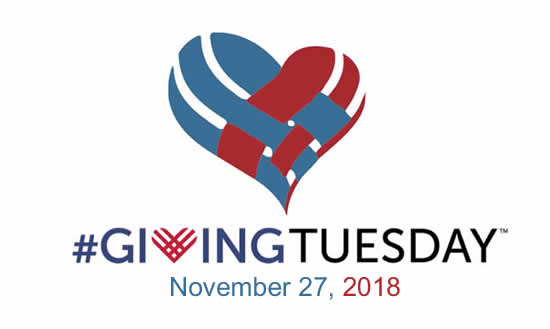
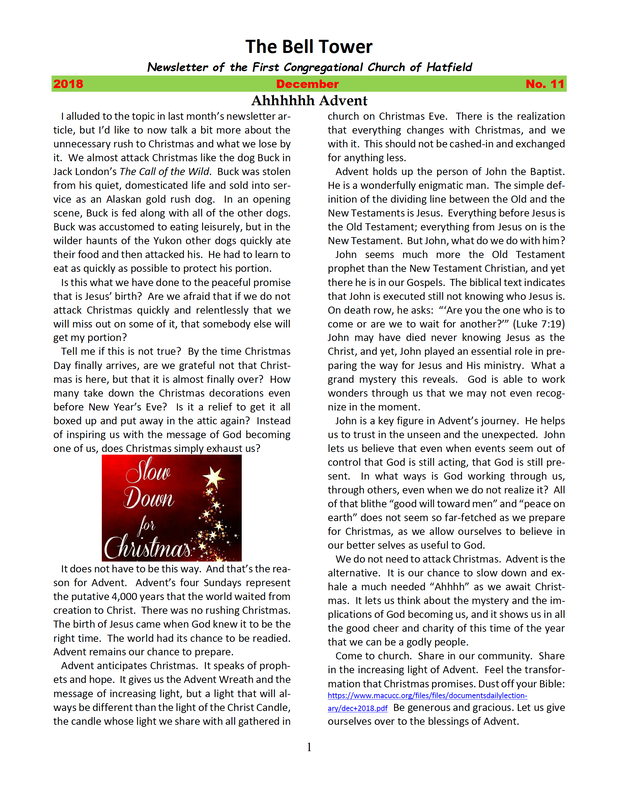





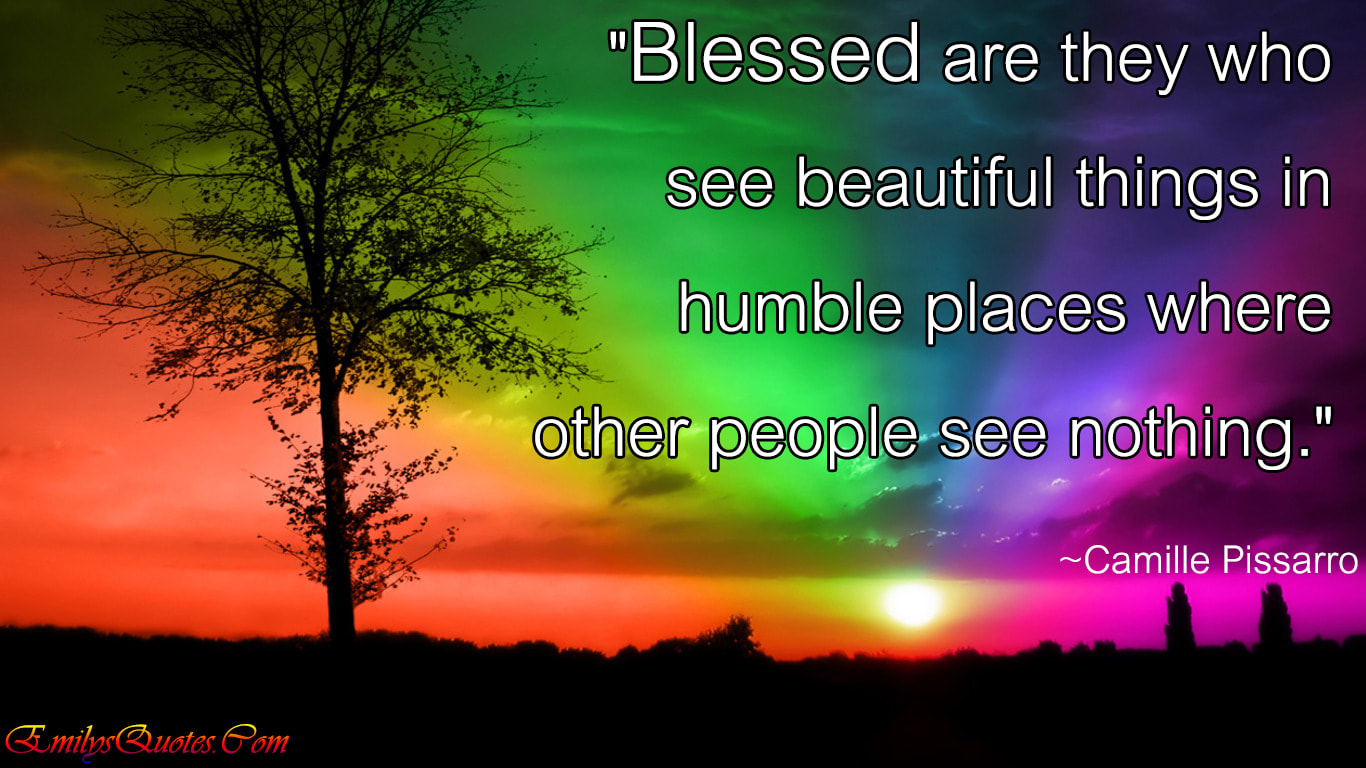

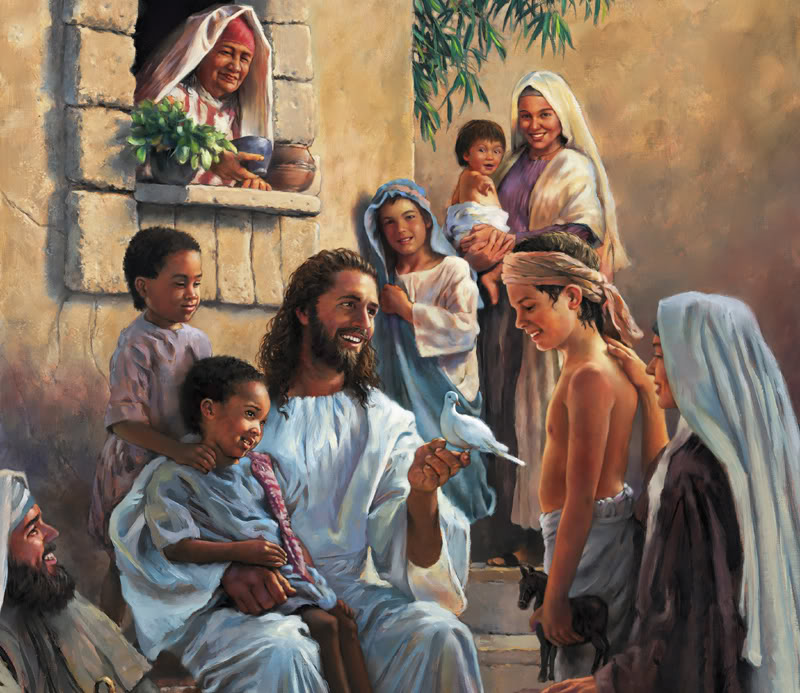

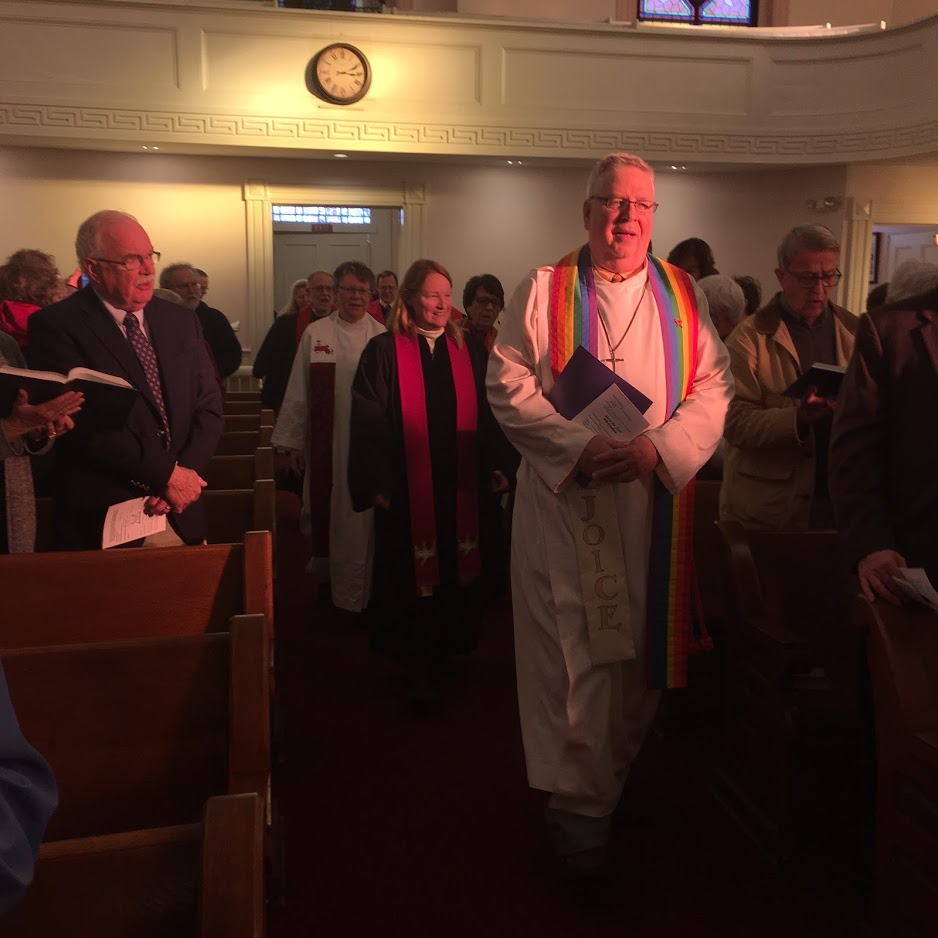
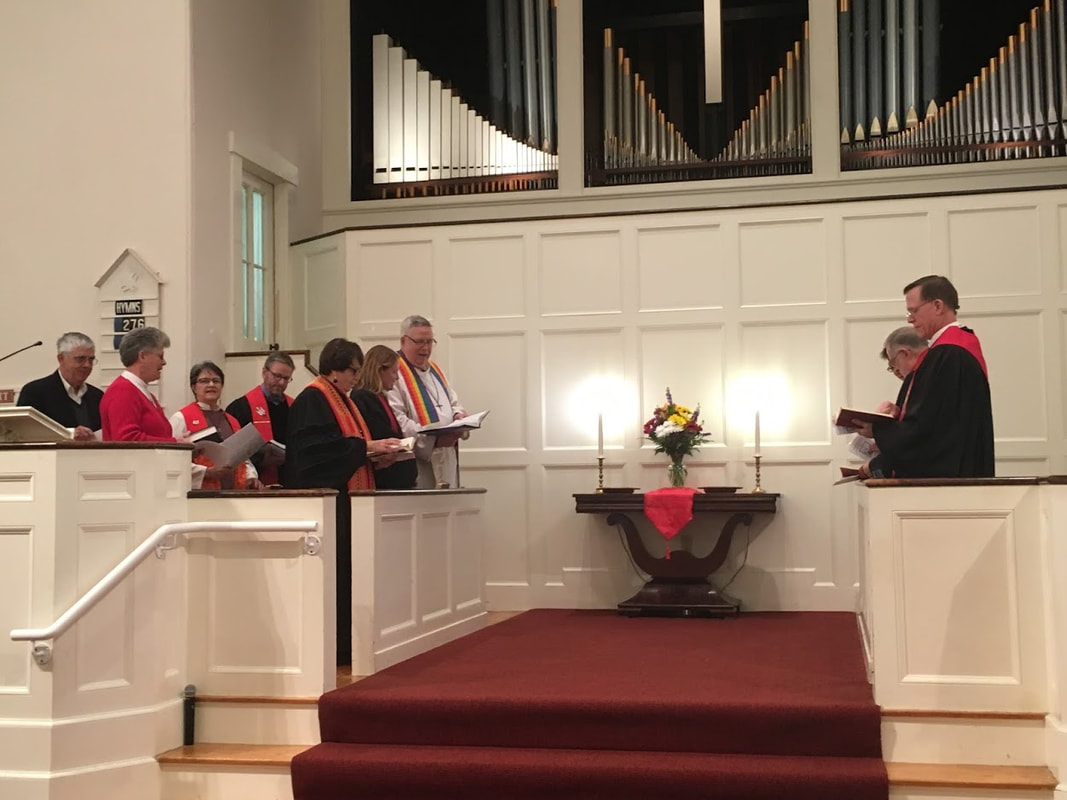
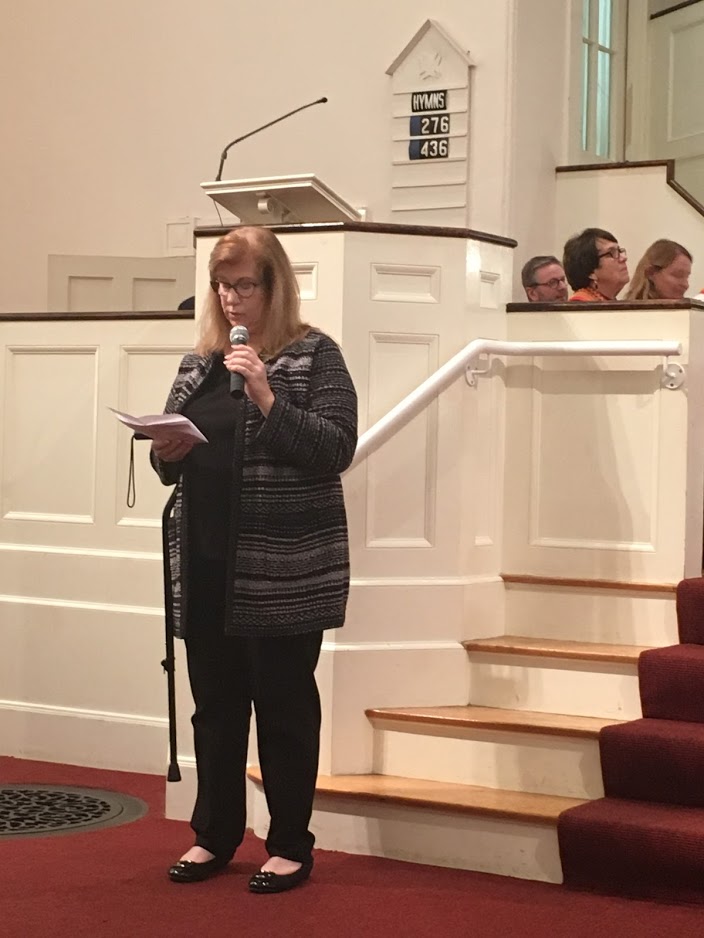
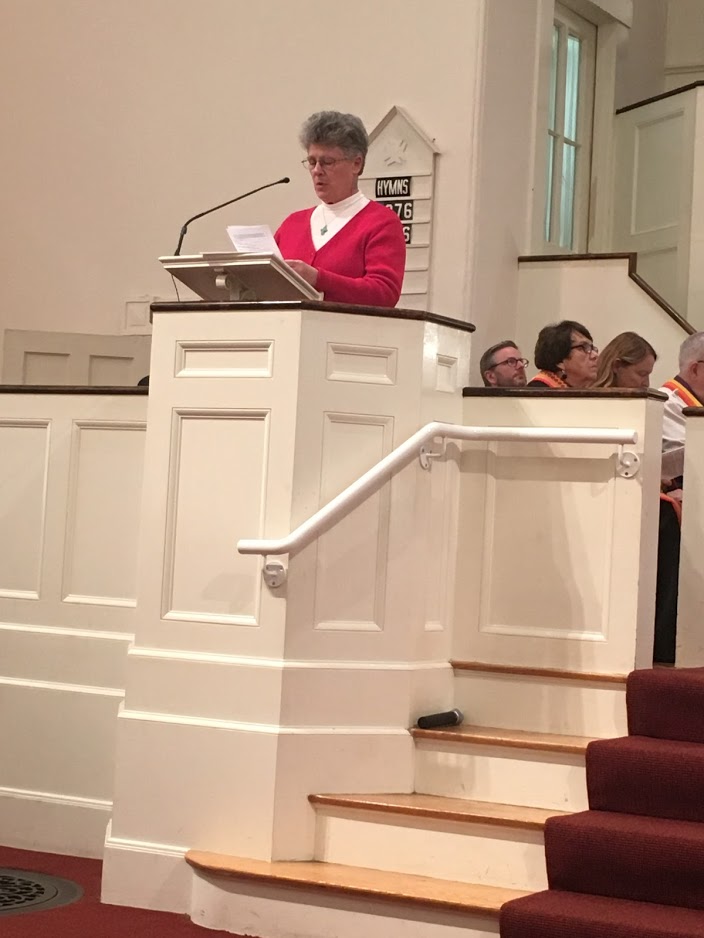
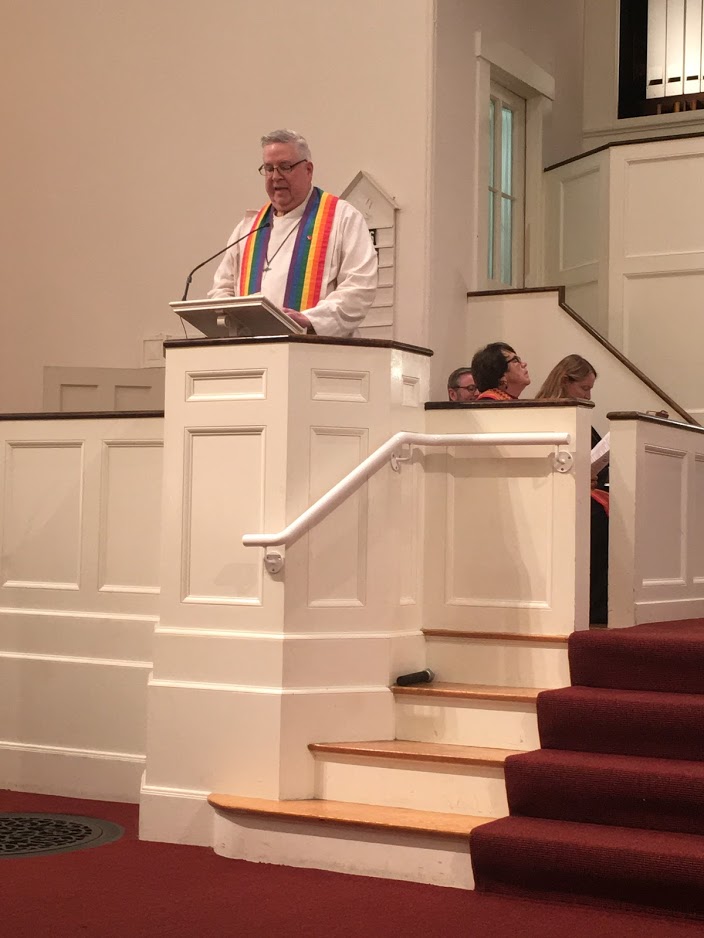
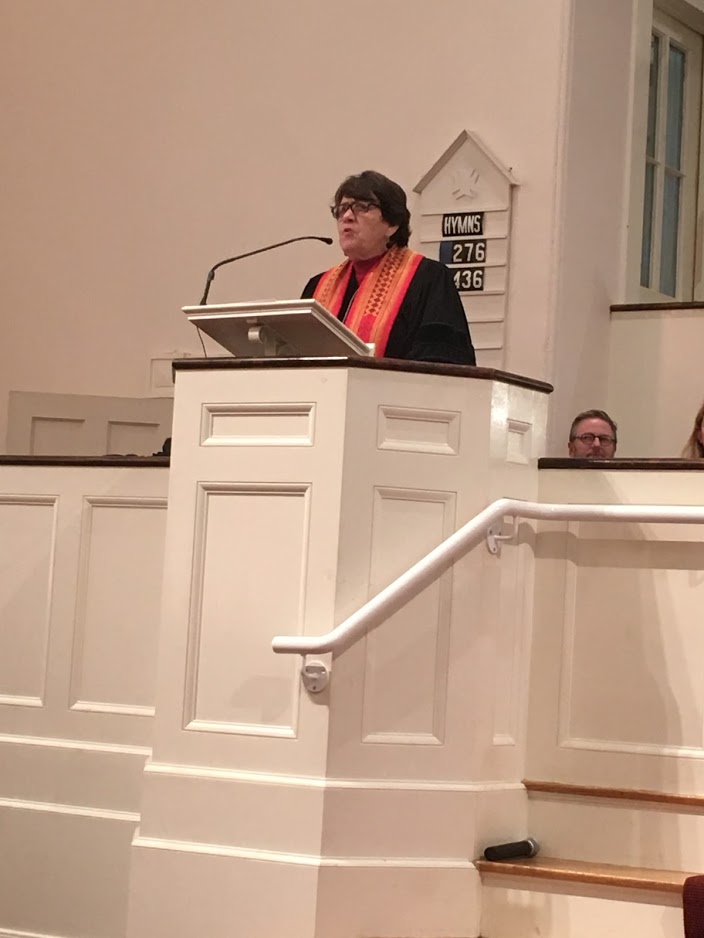
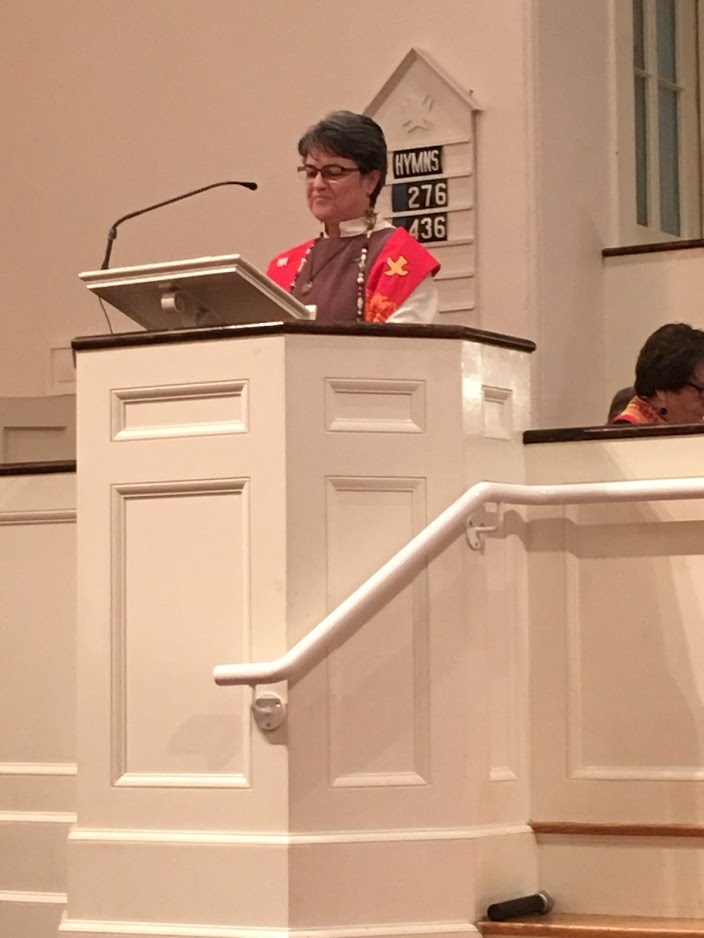
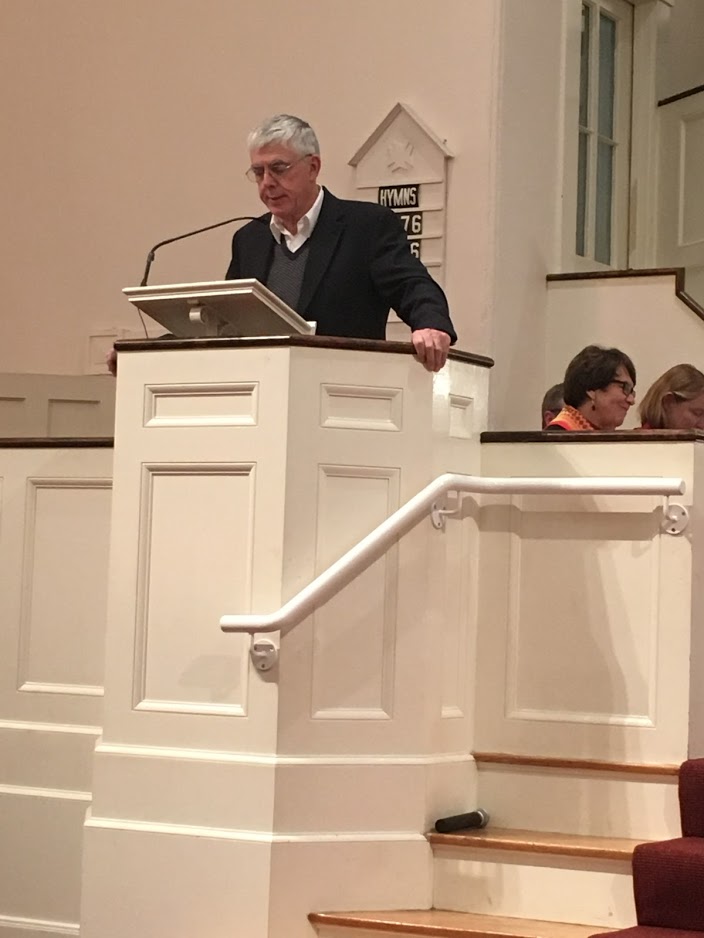
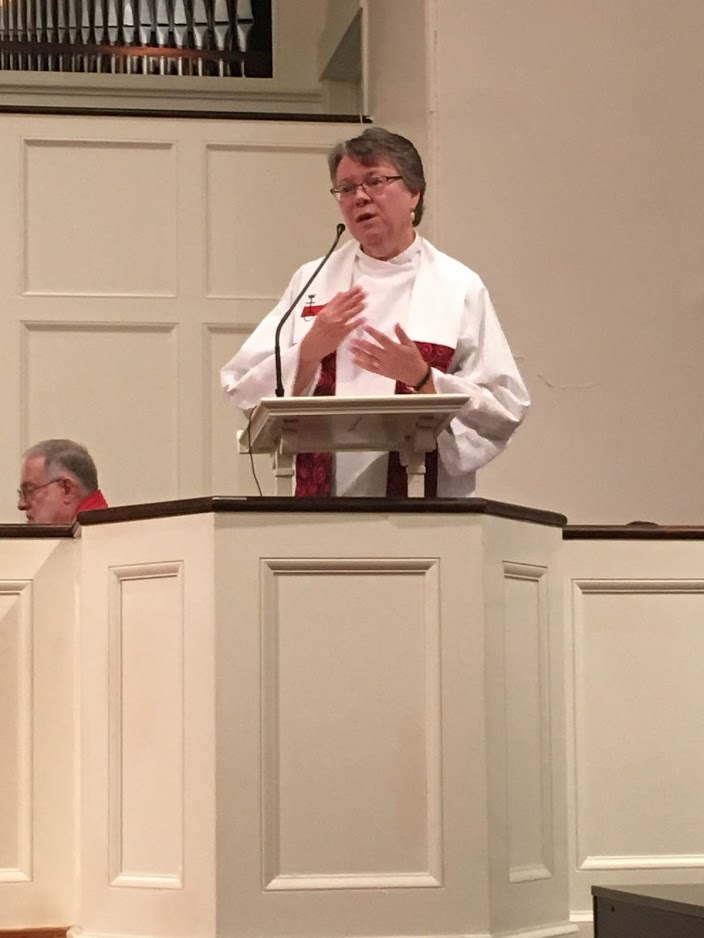
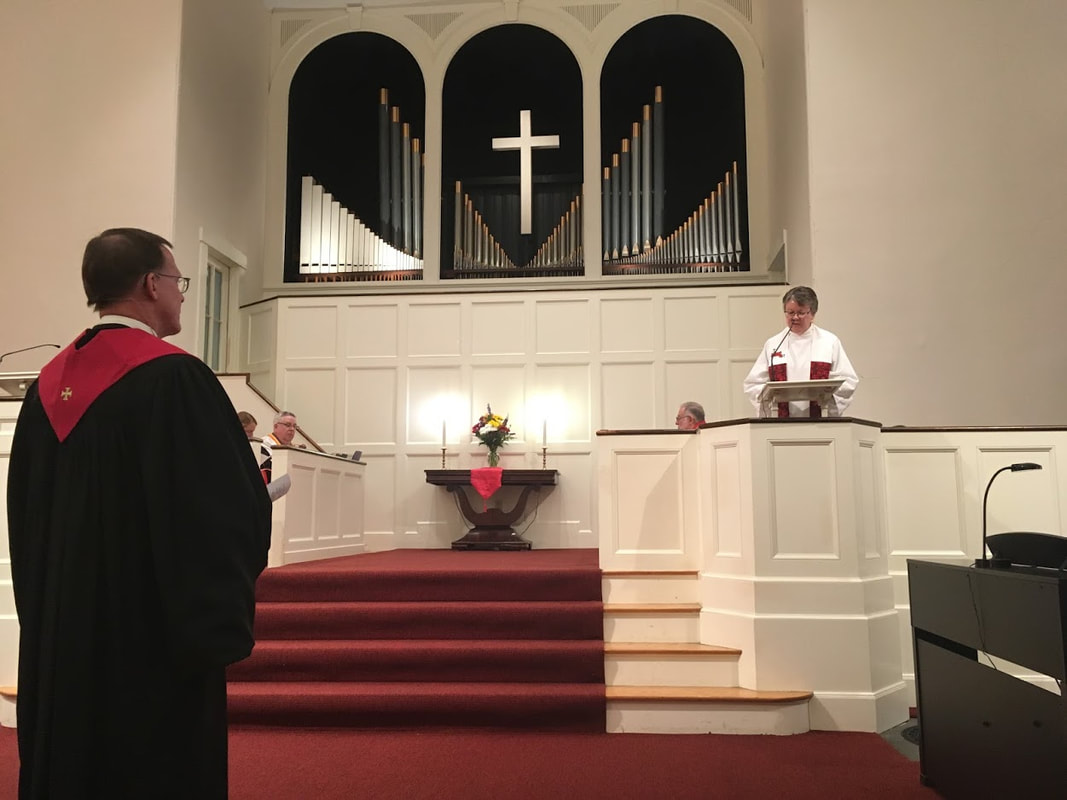
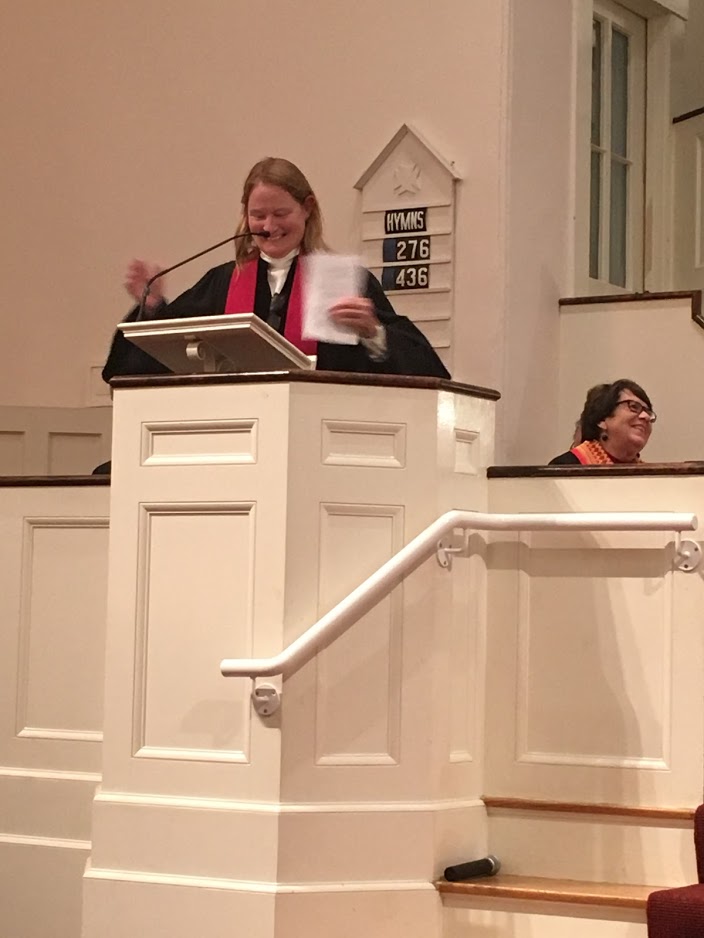
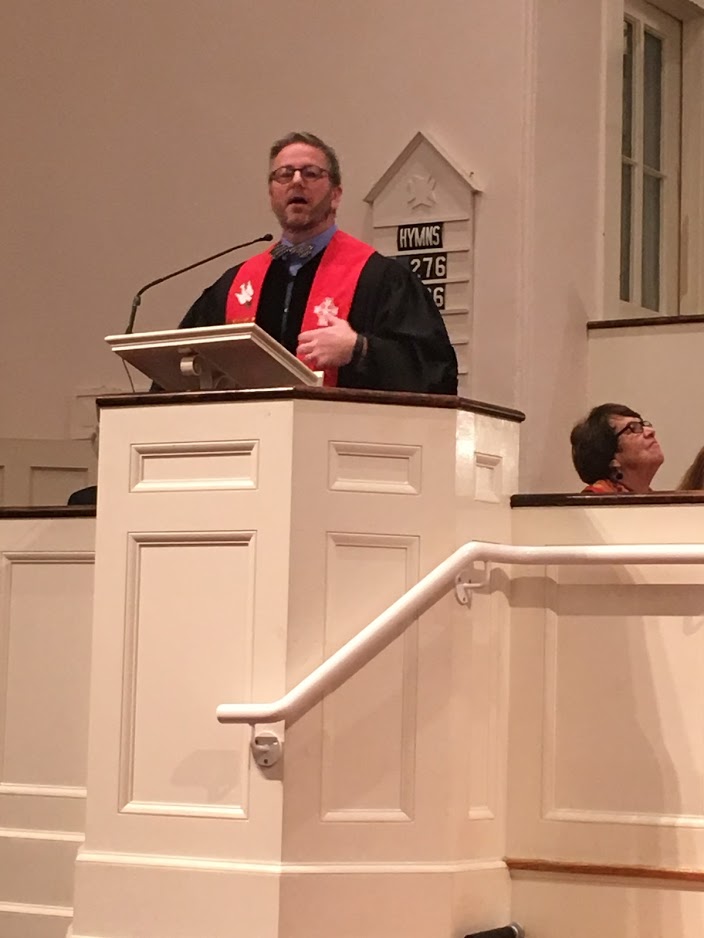
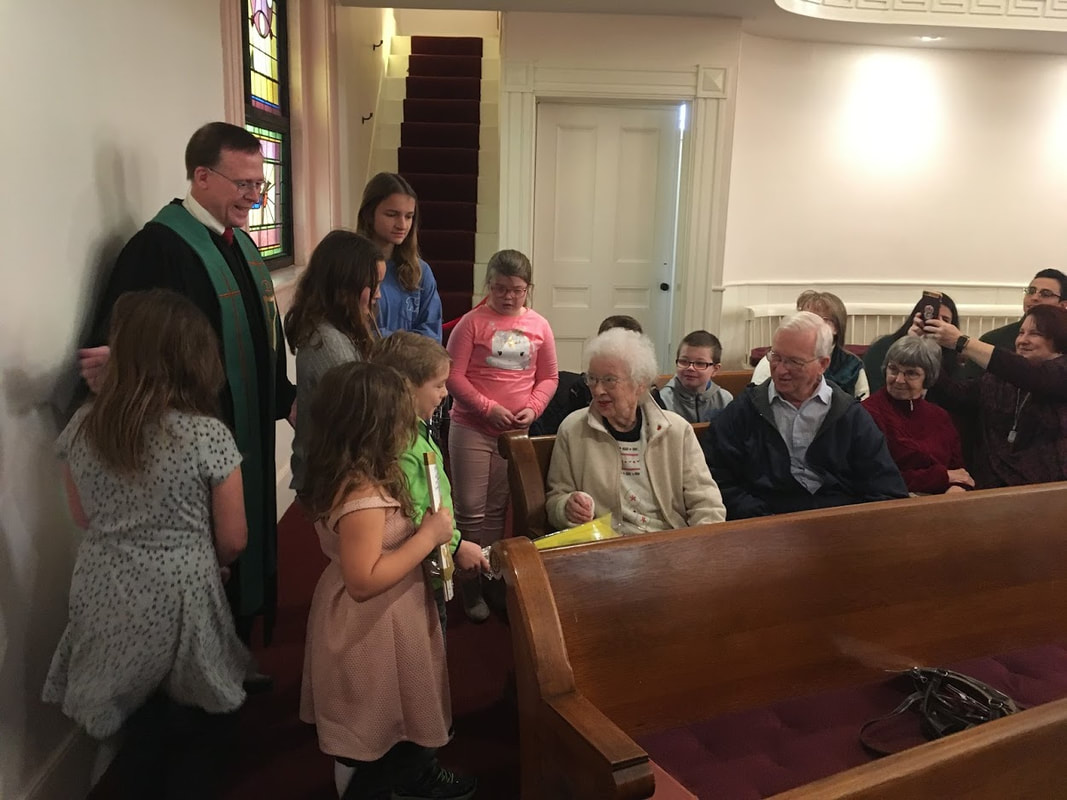
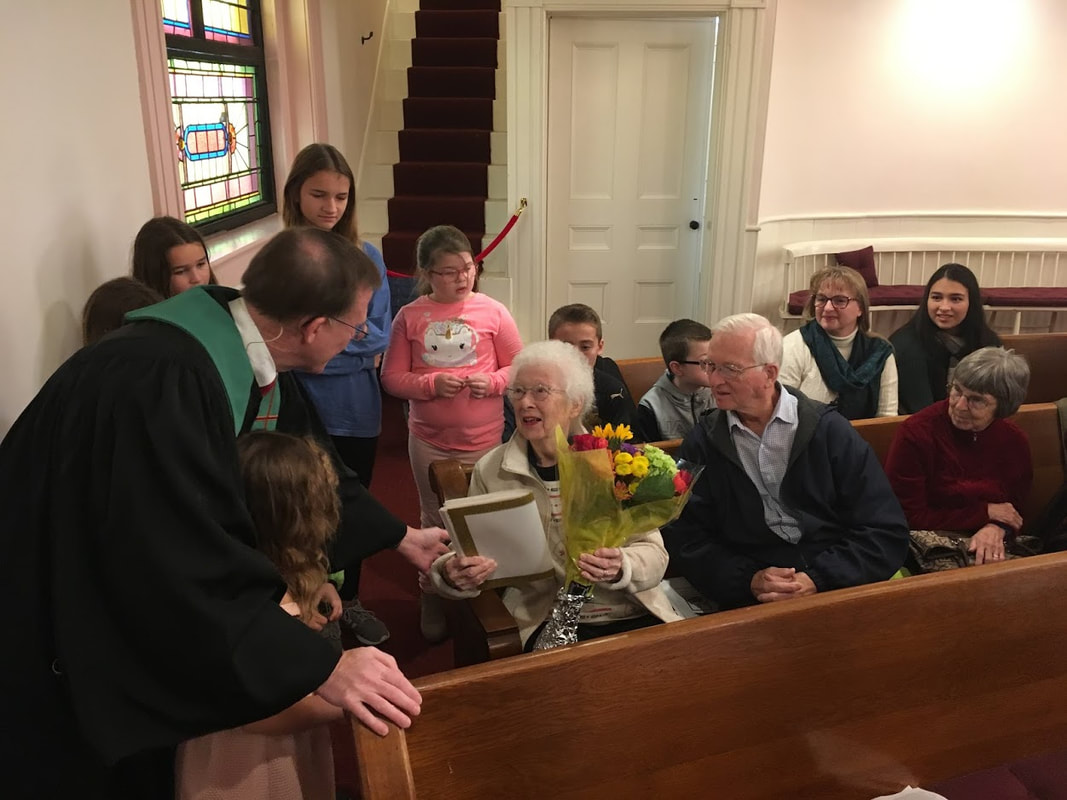
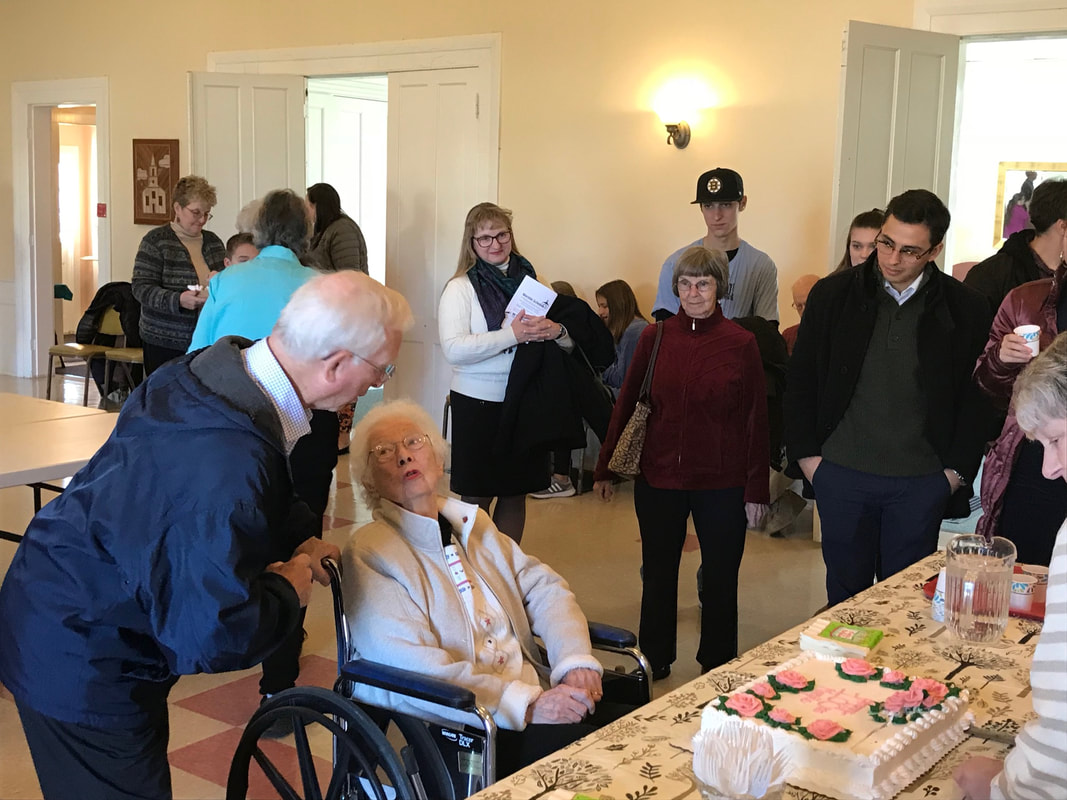
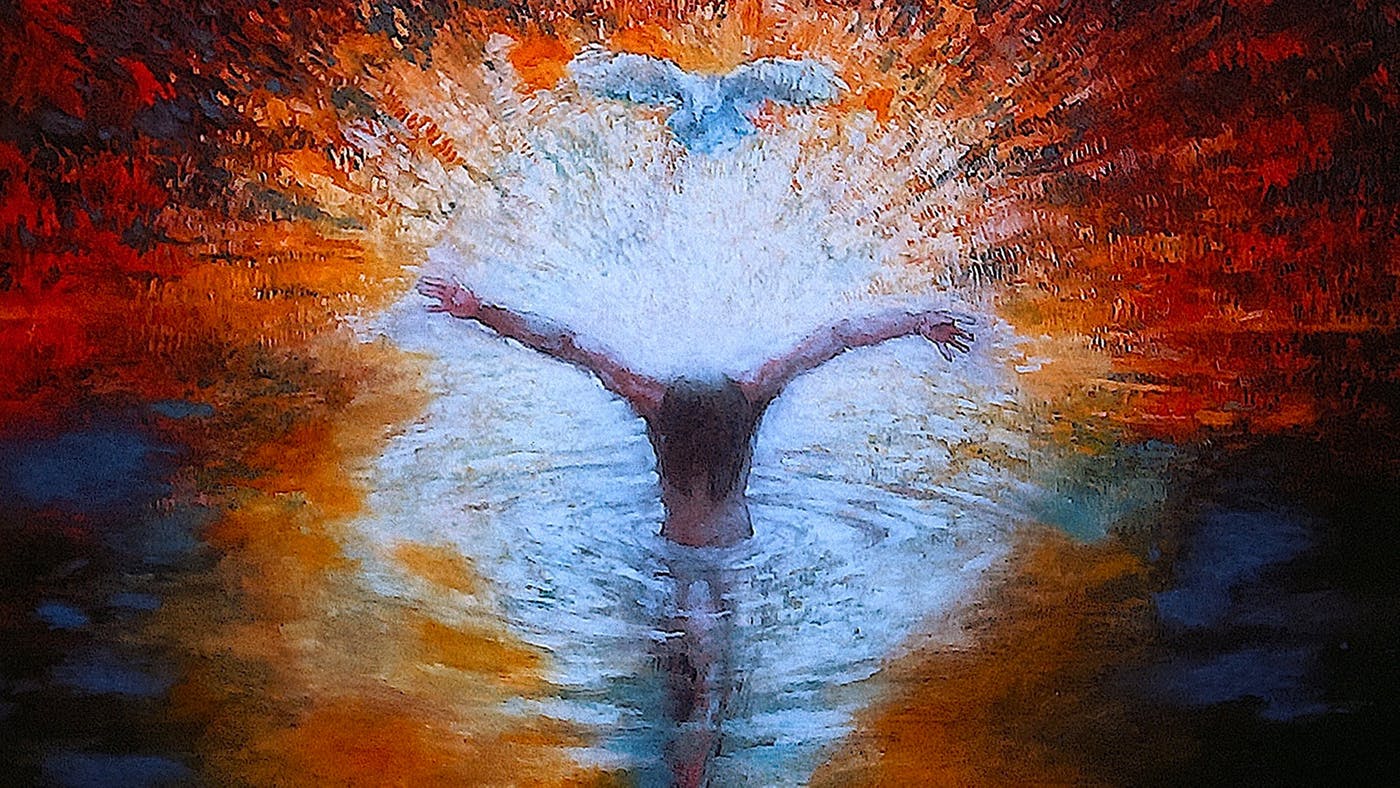
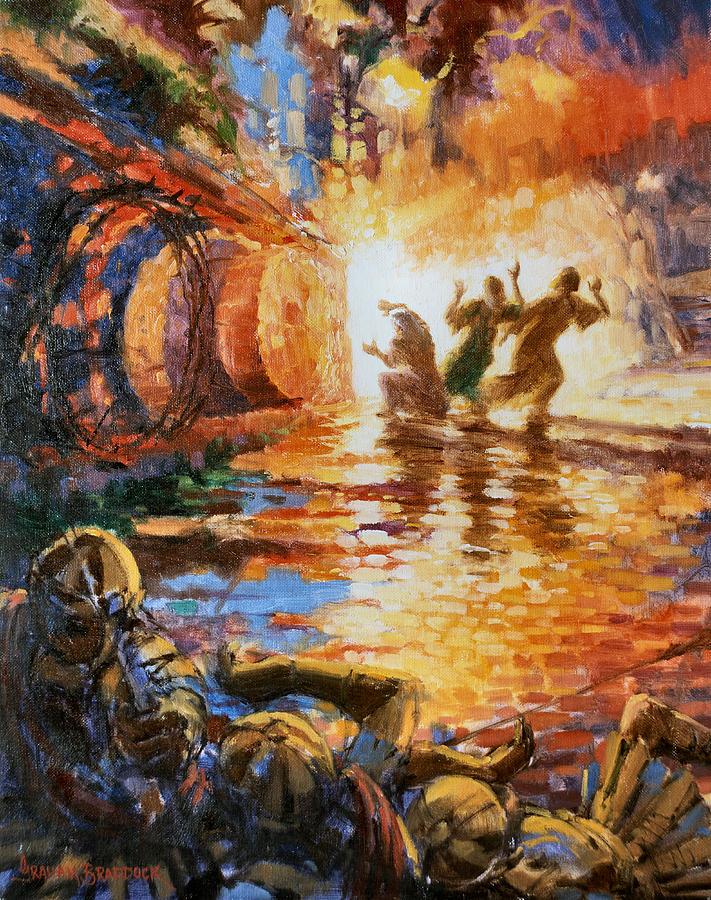
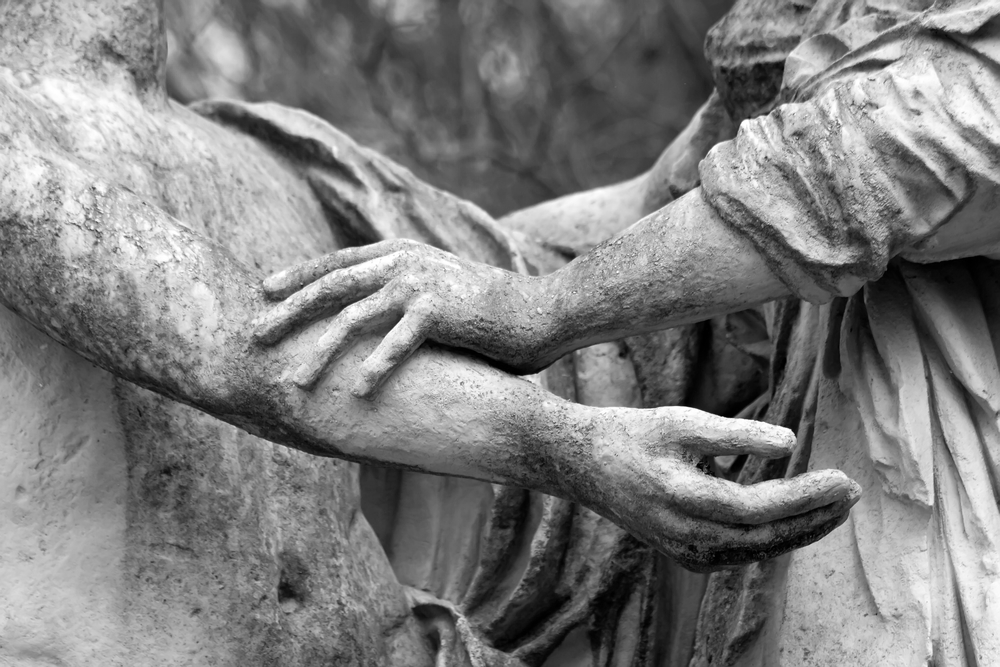

 RSS Feed
RSS Feed
